On Translating a Superhero: Language and Webcomics
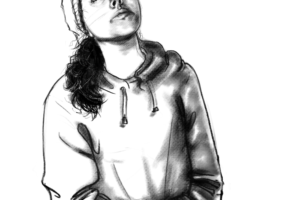
Deena Mohamed
Experiencing the Egyptian revolution as a teenager meant living through a period of history that witnessed my generation both shaping and being shaped by momentous events. This dynamic also impacted a webcomic I created in June 2013, at the age of eighteen, originally in English and later in both English and Arabic. The current essay reflects on the role played by language and translation in radically transforming the content of this webcomic, whose purpose varied as its audience grew and encompassed different constituencies. Though challenging, the experience of translating the comic into Arabic proved very positive. I suddenly found myself free to talk about the unsung heroism of Egyptian women, their activism, Egypt’s failings and strengths. What had started out as a joke intended to challenge sexism and liberal feminism suddenly became a much more complex venture, partly because translating the comic into Arabic made it go viral that much faster. My audience did not just diversify, it expanded rapidly.
Deena Mohamed is an Egyptian illustrator, artist and blogger. She created a viral webcomic, Qahera, in 2013 about a female Muslim superhero who combats Islamophobia and misogyny, amongst other things, and addresses social issues against the backdrop of the ongoing Egyptian protests. Her work has been featured on major media outlets such as The Daily Beast, BBC, Foreign Policy and The London Times.
Images from Deena Mohamed’s chapter:
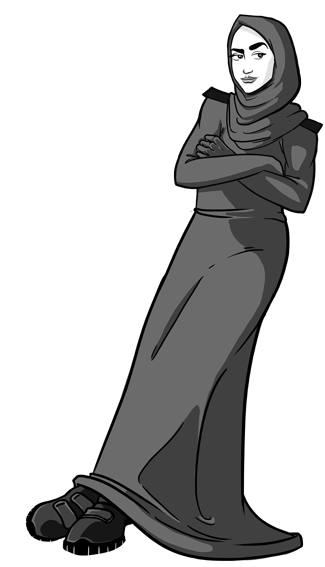
Figure 1: Qahera – A webcomic superhero
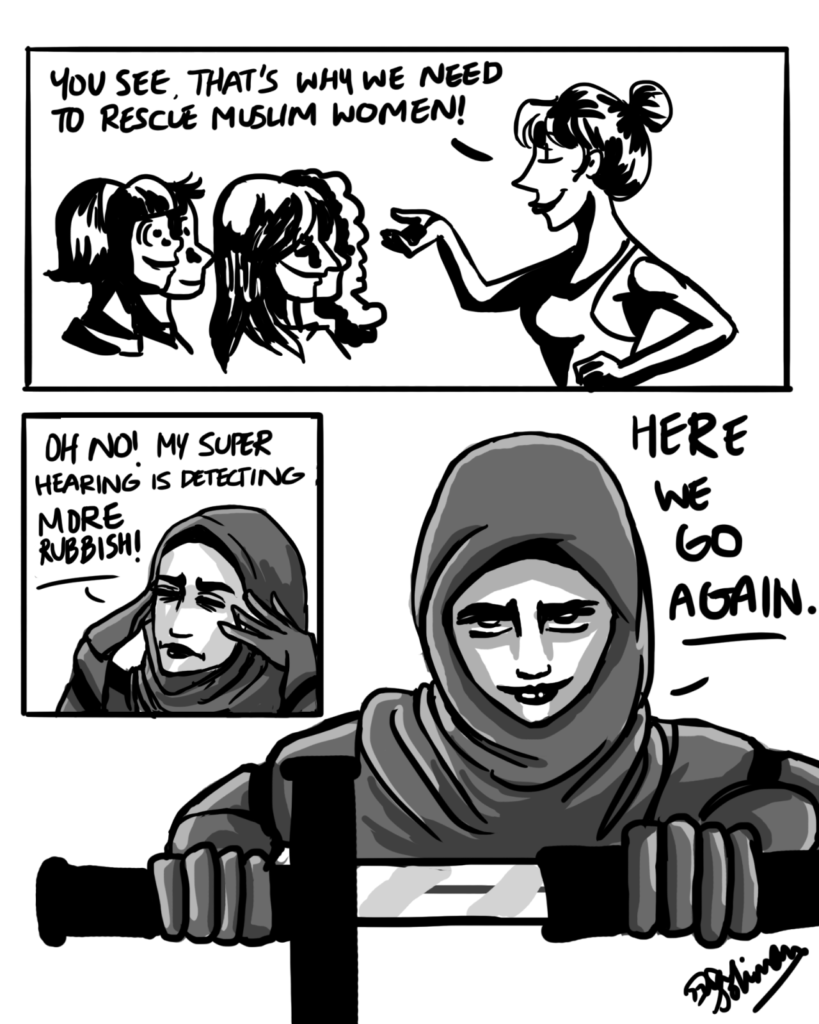
Figure 2: Qahera rejecting feminist assumptions about Muslim women (Part 1: Brainstorm)
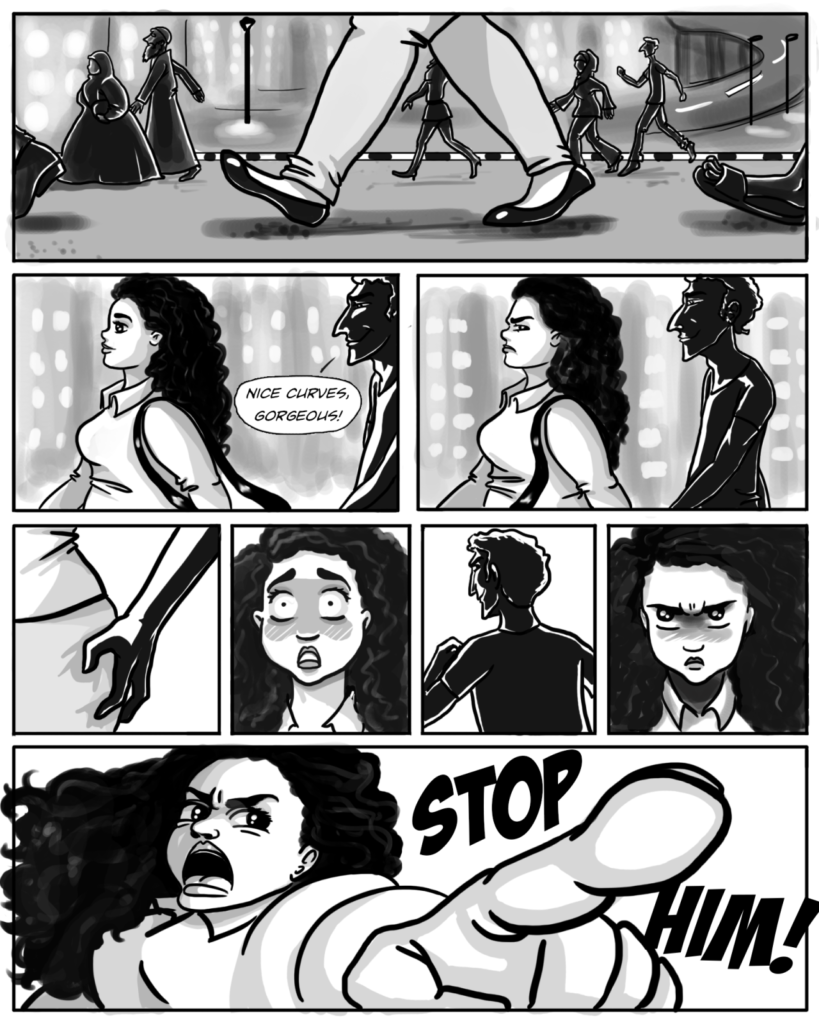
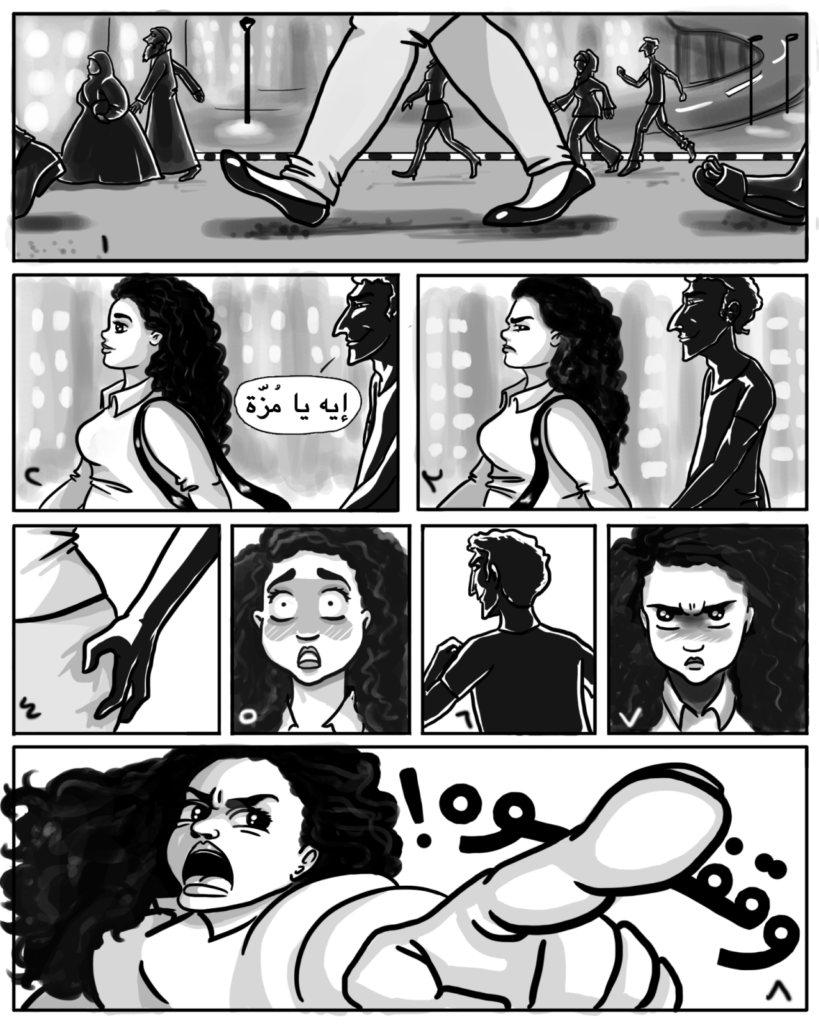
Figure 3: Part 3: On Sexual Harassment, in English and Arabic
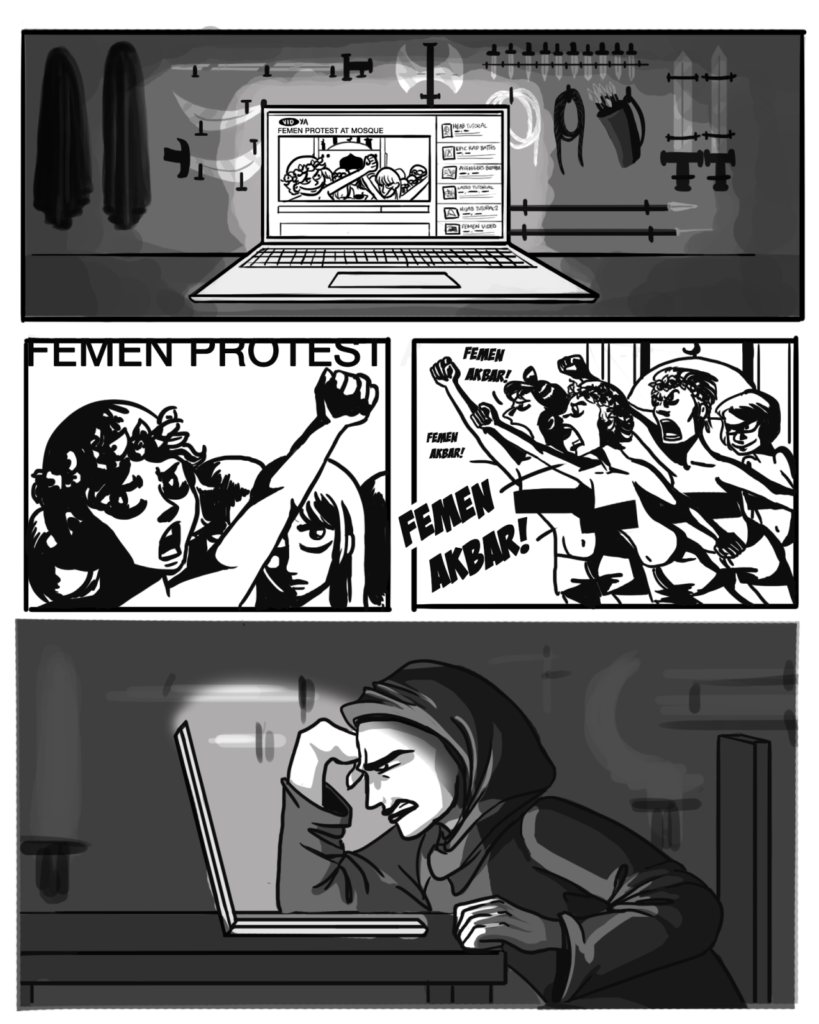
Figure 4: Part 2: On FEMEN
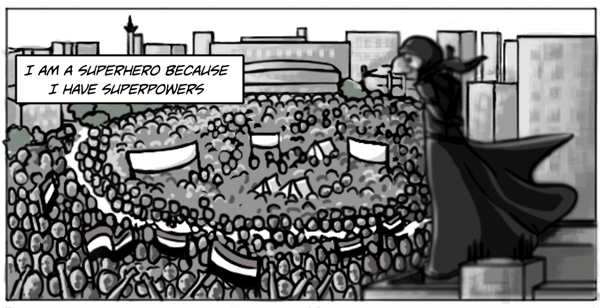
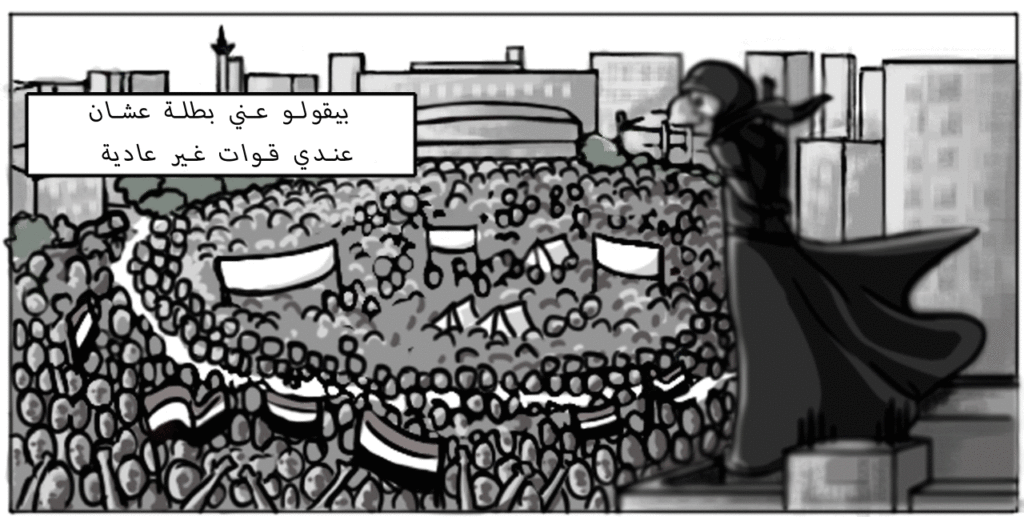
Figure 5: Opening panel of Part 4: On Protests in English and Arabic
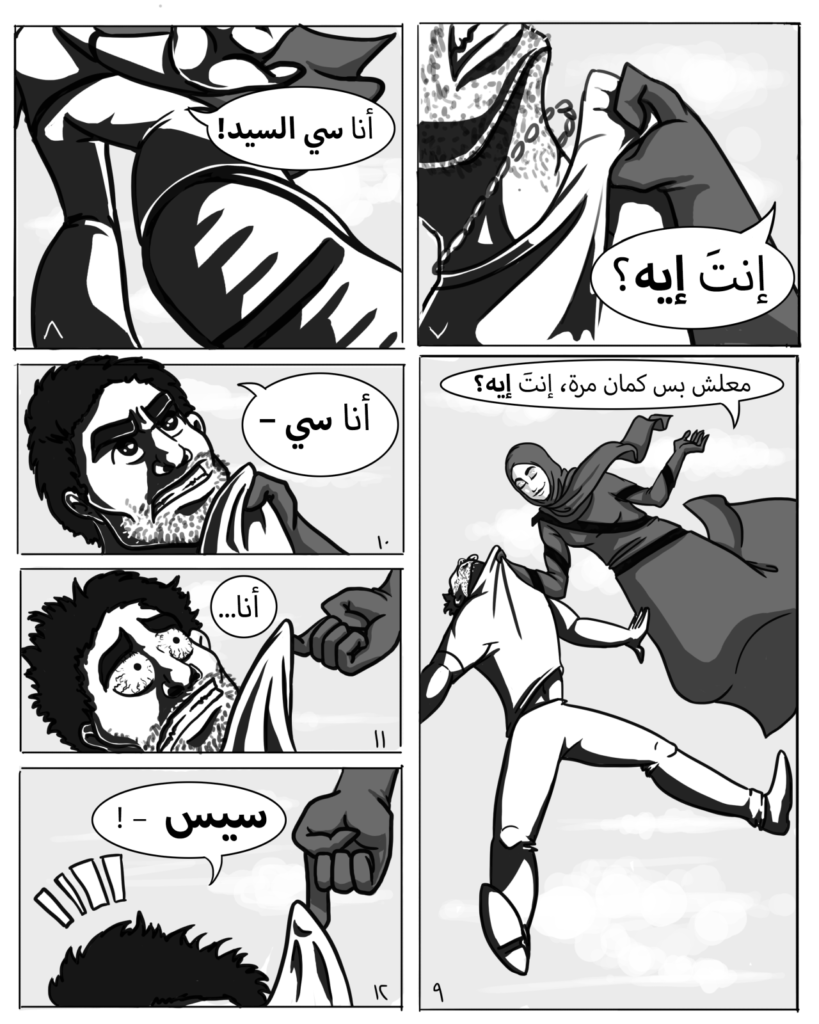
Figure 6: Part 5: On Music, Sort of (Arabic)
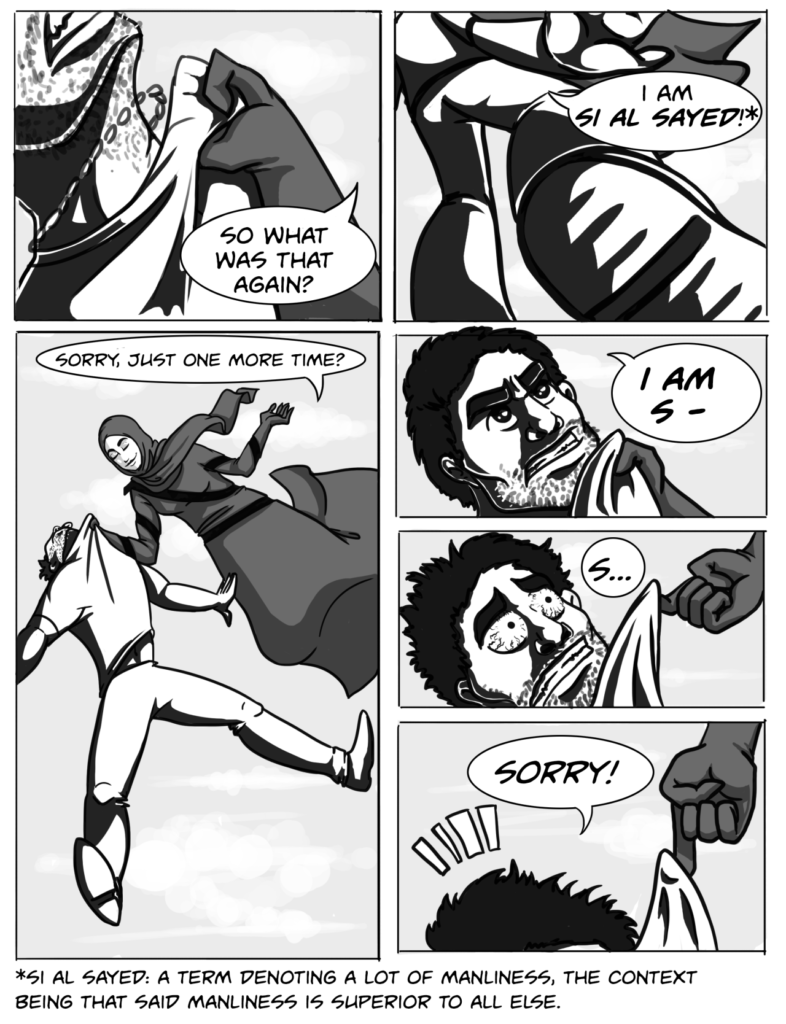
Figure 6: Part 5: On Music, Sort of (English)